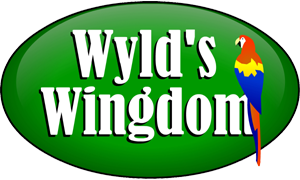Vitamin Deficiencies in Exotic and Pet Birds
Vitamin Deficiencies in Exotic and Pet Birds
There are many opinions out there about bird nutrition and what compromises a healthy diet for pet birds
. Some experts recommend seed supplemented with fresh fruits and vegetables, some will add pellets into the mix, and some recommend a diet of only pellets. This can become confusing for pet bird owners.
Avian nutrition research is an ongoing process, and although the bird food industry has been instrumental in developing basic nutritional guidelines, new discoveries are always being made. One fact that most experts agree on is that a diet that consists of seed only – especially the sunflower seeds and peanuts that many birds prefer – is not nutritionally complete and can result in a vitamin deficiency. vitamin A deficiency is common in pet birds and often goes undiagnosed.
Preventing a vitamin deficiency can be tackled by feeding a formulated pellet diet, supplementing a seed diet with vitamin-rich fruits and vegetables, or by adding vitamin and mineral supplements to the bird’s diet. Some supplements are designed to be added to the water dish, while other powdered vitamin supplements can be sprinkled over soft, fresh foods.
Some fresh foods that are rich in vitamins include dark, leafy greens such as kale, which contains vitamin A and calcium. Broccoli is full of vitamins A, K, B2 and C, and birds often enjoy holding a stalk of broccoli while eating the florets. Sweet potatoes are a great source of vitamin A, vitamin C, calcium and potassium. Birds love mashed sweet potatoes and this is a great way to introduce this healthy food at a young age.


